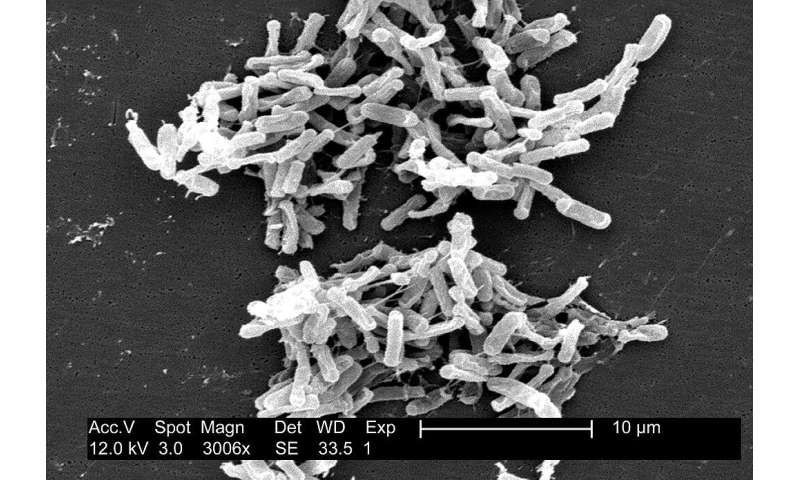Home » Health News »
Fecal transplants beat C. diff superbug 90% of the time

First reported in ancient China, human fecal transplants have made a comeback in modern medicine. Evidence shows this treatment can be effective in treating C. difficile—a gastrointestinal infection that can cause symptoms ranging from diarrhea to life-threatening inflammation of the colon.
In the latest edition of Australian Prescriber, gastroenterologist Dr. Samuel Costello and co-authors from the Queen Elizabeth Hospital in Adelaide examine the evidence of this ‘ultimate probiotic’ and the future directions of fecal research.
Dr. Costello says the first line of attack against C. difficile is antibiotics but, when this fails, fecal transplants can be used.
“fecal transplants cure eight or nine people out of 10 with recurrent C. difficile infection,” says Dr. Costello.
Having progressed from ancient methods where a fecal suspension was given by mouth to treat patients with severe diarrhea, these days fecal material from a healthy donor is given via the rectum using a colonoscope or retention enema, or via a tube through the nose or by swallowing capsules.
“As well as C. difficile, many conditions have been associated with an imbalance in gut flora. There have been trials to see whether fecal transplants could be effective in treating irritable bowel syndrome, Crohn’s disease, autism and other conditions,” says Dr. Costello.
Source: Read Full Article


